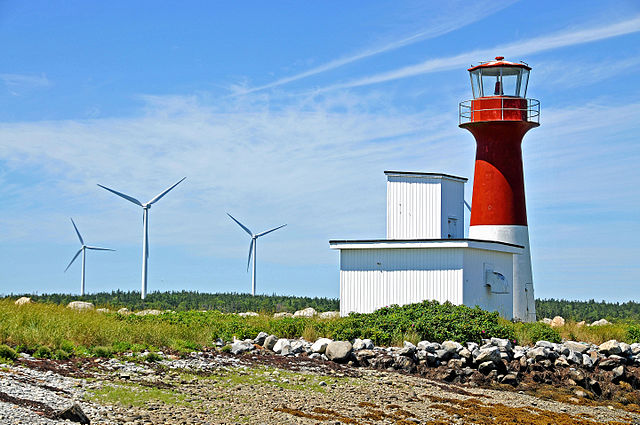
Despite Muskrat Falls delay, Nova Scotia remains confident in renewable target
by Cleantech Canada Staff

Labrador's beleaguered hydro project could inhibit province from reaching its target of getting 40 per cent of its electricity from green sources by 2020

Nova Scotia has increased its wind power capacity from just one per cent in 2007 to 14 per cent today, but still faces an uphill battle to kick coal. PHOTO: Dennis Jarvis, via Wikimedia Commons
HALIFAX—Nova Scotia’s energy minister says he’s confident the province can meet its targets for renewable energy despite potential delays with the Muskrat Falls hydroelectric project in Labrador.
Nova Scotia has set a goal of obtaining 40 per cent of its electricity from green sources by 2020—with Muskrat Falls expected to provide slightly less than 10 per cent of the province’s overall needs once it’s online.
Michel Samson says his department is looking at contingency plans to cover the difference, noting that the goal is still four years away.
He says the province is continuing to invest in technologies such as power storage and tidal power in an attempt to increase the amount of renewable energy available.
A consultant’s report submitted at a Nova Scotia Utility and Review Board rate hearing warns the renewable target could be threatened if Muskrat Falls is delayed or cancelled.
The report by Drazen Consulting Group says the province and Nova Scotia Power should have alternate plans in place in the event electricity doesn’t flow from the project as expected.